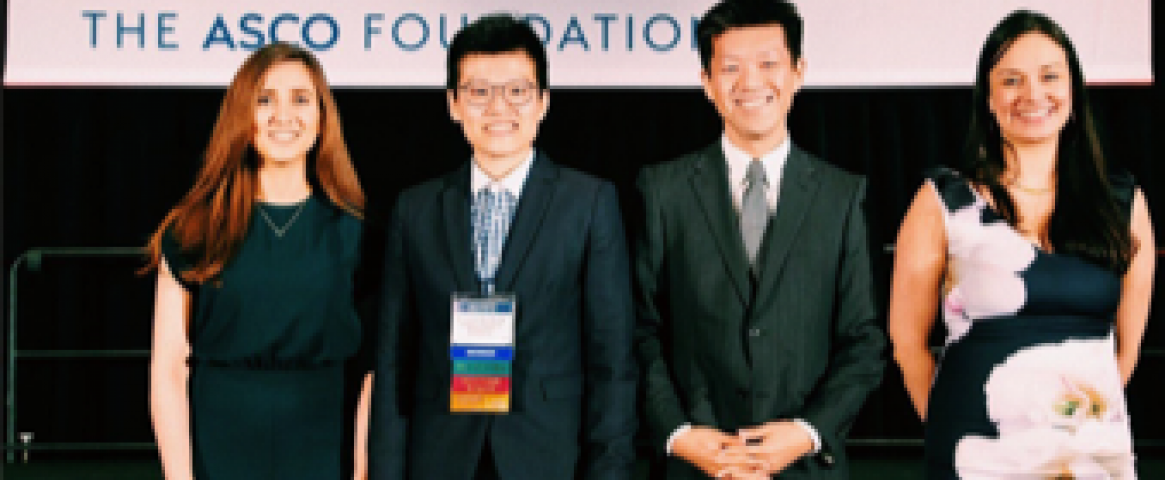By Atie Kashef
Immunotherapy has revolutionized cancer therapy as the most promising strategy to treat cancer in recent times. The key scientific question, however, is how to predict which patients would benefit from specific immunotherapies. While the therapy is highly effective in some patients, many do not respond to immunotherapy or do not have a durable response.
To overcome this challenge, scientists have turned their attention to biomarkers, the biological mechanisms and measures which could be used to direct certain immunotherapies to patients with particular cancer profile, including genotypes, cancer types and immunotypes.
Immune checkpoint inhibitors gain attention
Immune checkpoint inhibitors (ICI) are particularly recognized as influential biomarkers in immunotherapy research. Checkpoint inhibitors entered the mainstream in 2018 when two scientists, James P. Allison, PhD, of The University of Texas MD Anderson Cancer Center in Houston, and Tasuku Honjo, MD, PhD, of Kyoto University in Japan, jointly received the Nobel Prize in Physiology or Medicine for their discoveries on CTLA-4 and PD-1/PD-L1 mechanisms.
Scientists applied these biomarkers, which ultimately influence FDA approval of ICIs, to develop the next generation of immunotherapy drugs, including pembrolizumab and nivolumab, which have fundamentally improved the overall survival in certain groups of patients diagnosed with various cancer types.
Yet the challenge has been that patients with different cancer profiles show very heterogeneous response to ICI therapy, and many cancers resist immunotherapy or develop adverse events due to a patient’s genetic background, genetics of the tumor, immune system or other factors.
Stefan Groha, Ph.D., a research fellow at Dana-Farber Cancer Institute in Boston, is working on this problem with a particular focus. “While there are known biomarkers for how well patients do on immune checkpoint inhibitors but there are barely known biomarkers for immune-related adverse events.”
The emergent importance of phenomarkers
Advanced methods in cancer genetic analysis and computational genomics brought a novel term into the field. Phenomarkers are integrated genetic associations or particular genotypes that predict physiological phenotypes or outcomes.
Immune checkpoint inhibitors use the potential of specific cell recognition by the immune system to attack the tumor. The inherited genotypes that influence immune system in patients could also influence the outcome of immunotherapy.
Study reveals use of phenomarkers for immune checkpoint inhibitors
Groha recently discovered putative phenomarkers associated with overall survival and immune-related adverse events after ICI therapy, including significant HLA alleles. Major histocompatibility complex (MHC) or HLA represents one of the most interesting examples of genetic variability, and a phenomarker that could explain the heterogeneity of response to immunotherapy in patients.
One way to make the prediction better, he says, “is to try to combine the predictive performance of known biomarkers into one phenomarker which predicts a specific risk of a patient to do well on ICIs.”
A physicist with a strong quantitative background, Groha used genomic and clinical data from a large cohort of patients with different cancer types to identify accurate and efficient phenomarkers for ICIs.
“If we impute genotypes and use external association studies to obtain the polygenic risk scores and then integrating clinical features with genetics, we can build a predictor of overall survival that is not only prognostic but also predictive most over the known biomarkers alone,” says Groha, who presented his results at the European Society of Human Genetics virtual conference in June 2020. He was also nominated for young investigators award based on the study.
Groha and his colleagues aim to predict adverse events based on large clinical and panel sequencing data sets of around 2000 cancer patients. They developed a novel method that imputes germline and non-coding variants, then associate polygenic risk scores with immune-related adverse events.

Sarah Abou Alaiwi, M.D., a medical research fellow at Dana-Farber who received the 2019 ASCO Merit Award for her contribution to this study, puts the findings into clinical perspective if the results are confirmed. “For patients or clinicians especially who want to put their patients on ICI trials, if they know that this patient has a certain variant, which predisposes him or her for adverse events, they can simply not put them on immune checkpoint inhibitor and then look for an alternative drug regime,” she says. "They will also be able to predict which patients may benefit the most from immune checkpoint inhibitors.”
Cancer immunotherapy represents a highly interdisciplinary and advancing field of research. Different expertise and technologies come together to quantify molecular and clinical experiments and translate these results into precise cancer treatment.
Researchers stress the need to bring cohorts of pa1ents together, as well as the analytical power and perspectives, to tackle the complex puzzle of cancer. This approach has led to recent discoveries in immuno-oncology and therapeutic improvements, revolutionizing overall survival patterns and patient quality of life.
Atie Kashef is a biomedical researcher with the focus of genetics. She has achieved her B.S. and M.S. degrees at the top-ranked universities in Iran and worked more than five years in medical diagnostic labs and human genetics research before moving to Germany for her post-graduate studies. Since 2017, she has worked on her Ph.D. project on Epi/genomic analysis of a preclinical model for Immunotherapy in human melanoma. Kashef has published in several science blogs and newspapers in Iran and Germany. She has been featured on the “SamteNo" satellite talk show as an inspiring science communicator and female activist in STEM for the Persian-speaking community.
This story was produced as part of NASW's David Perlman Summer Mentoring Program, which was launched in 2020 by our Education Committee. Kashef was mentored by Elizabeth Whittington.







